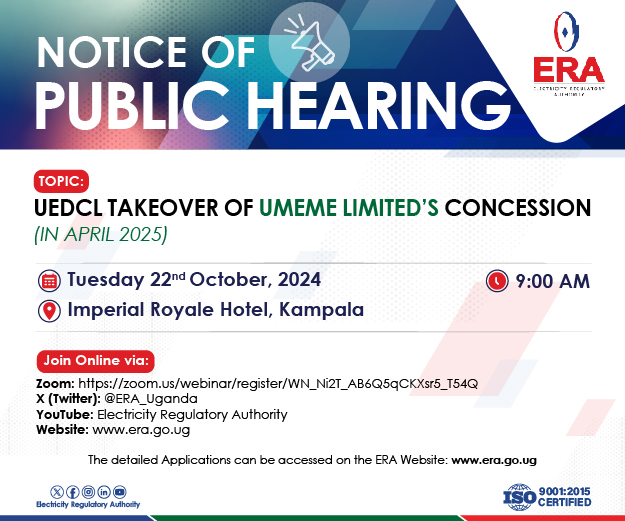A massive scandal involving a Shs 1 trillion project has rocked the National Information Technology Authority of Uganda (NITA-U) as the World Bank uncovers significant corruption and mismanagement. The Uganda Digital Acceleration Project (UDAP), worth USD 200 million (about Shs 1 trillion), has become mired in delays and allegations of internal conflicts, with suspicions of corruption at the highest levels.
In a letter dated January 7, 2025, the World Bank’s acting country manager, Rogers Ayiko, expressed concern over the slow progress of the Uganda Digital Acceleration Project (P171305), particularly regarding technical discussions. The project, which entered its third year of implementation in 2024, is currently facing significant delays, with only around 2% (USD 4 million) of the funds disbursed so far. The project’s closure is scheduled for May 30, 2026, and the World Bank is eager to accelerate its implementation.
The UDAP-GovNet project was approved in 2022 with the aim of expanding connectivity across Uganda to improve e-Government services at local administrative units, including sub-counties, parishes, schools, and hospitals. After approval from the Ministry of Finance, Planning, and Economic Development, the World Bank set aside USD 200 million for the project, consisting of USD 60 million in grants and USD 140 million in credits. The project became effective in February 2023, but implementation has been plagued by internal strife and infighting within NITA-U.
Sources indicate that there are ongoing disputes among NITA-U officials over who should control the awarding of contracts to both local and foreign service providers. Allegations suggest that these internal conflicts have led to the downgrade of approved terms of reference for awarding contracts, causing delays and disrupting progress. Furthermore, service providers vying for lucrative contracts under the project are reportedly engaged in their own rivalries, further complicating the situation.

The NITA-U project includes a number of high-value components, including the extension of the National Backbone Infrastructure (NBI) to 20 major towns, the upgrade of existing data centres, the purchase of international bandwidth, mobile broadband deployment, and the establishment of Wi-Fi hotspots in rural and refugee areas. The project is also intended to enhance digital services in sectors such as agriculture, education, justice, and health, with a focus on digital inclusion and accessibility for persons with disabilities (PWDs).
One of the most contentious areas of the project is the expansion of the National Backbone Infrastructure (NBI), valued at USD 26 million. NITA-U’s Board Chairperson, Alexander Kibandama, who is rumored to be the biological brother of the Deputy Speaker of Parliament, Thomas Tayebwa, has reportedly pushed for Chinese telecom giant Huawei to handle the NBI expansion and the $10 million data centre expansion. However, this has raised concerns among some World Bank representatives and NITA-U officials who oppose awarding the contracts to a Chinese firm, citing geopolitical tensions and preferences for Western-aligned companies.
Further complicating matters are NITA-U’s Director of Finance and Administration, Rhoda Kimera, and Tanzanian businessman George Nkya, who are said to be advocating for a Tanzanian company to handle the USD 10.8 million purchase of additional internet bandwidth. Additionally, they are reportedly pushing for Technology Associates to manage the USD 7 million expansion of the Metropolitan Area Network Centre.
Amid these conflicts, the Government of Uganda (GoU) has announced plans to mainstream NITA-U’s functions into the Ministry of Information, Communications, and Technology (ICT) and National Guidance within three years. However, this move has been met with resistance from some Kigezi region MPs, who have reportedly been influenced by high-ranking officials from Parliament, a philanthropic billionaire, and a prominent minister from Kigezi, all of whom oppose the merger.

NITA-U officials have warned that the potential merger could lead to the suspension of the project and its financing from the World Bank, which would cripple the country’s digitalization efforts. In response, the World Bank clarified in a letter dated January 12, 2023, that it has no objection to the merger, provided the government works closely with the bank to ensure minimal disruption to project activities. The World Bank emphasized the importance of continued collaboration to achieve the project’s objectives, regardless of the outcome of the restructuring.
Another twist to the story involves the fifth phase of the National Backbone Infrastructure project, where President Museveni had previously directed that Huawei Technologies, the company responsible for the first four phases, continue with Phase 5 using financing from the Chinese EXIM Bank. However, the contract for this phase has yet to be signed, despite the procurement process being concluded in 2022. Allegations suggest that NITA-U officials, in collaboration with some members of the Ministry of ICT and the Attorney General’s office, have deliberately stalled the signing of the contract in order to extract bribes, demanding a 10% kickback of the project cost.
The situation has raised serious concerns about corruption and mismanagement at NITA-U, threatening to undermine the government’s digital transformation agenda. The World Bank’s continued support will depend on resolving these issues and ensuring that the project can proceed without further delays or corruption scandals.
Efforts to talk to implicated persons to defend themselves by press time were futile as non of them could pick our repeated calls.
For comments and feed back Whatsapp 0744923996




